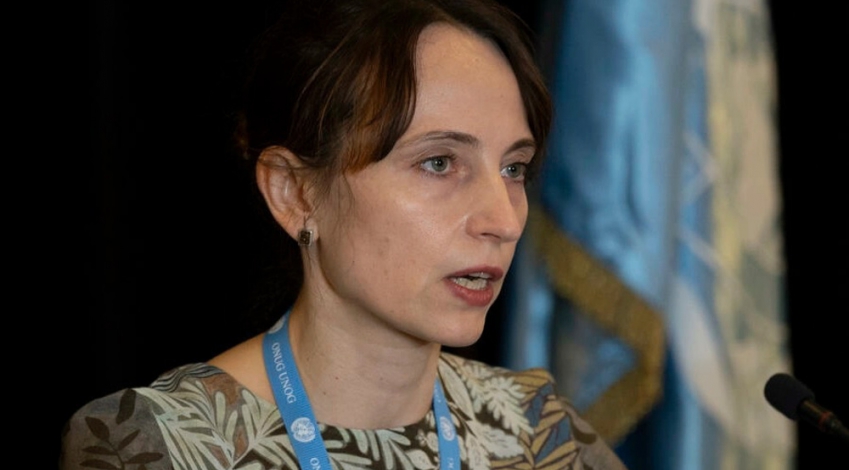Tuesday 10 May 2022 - 19:29
Story Code : 396379
Top official: UN rights expert solely to assess impact of sanctions on Iran visit
UN Special Rapporteur Alena Douhan began her 11-day visit to Iran, where she is due to meet the country's human rights officials and members of non-governmental organizations,�on Saturday.
Kazem Gharibabadi, the Judiciary chief�s deputy for international affairs and secretary of the High Council for Human Rights, said that Douhan�s mission does not involve investigating matters apart from sanctions imposed unilaterally on Iran.
�Nations hit by sanctions�should use all available resources to hold the countries calling for and enforcing unilateral sanctions liable,� Nour News, affiliated to Iran's Supreme National Security Council, quoted him as saying.
With regard to the continuing hostility towards Iran, the senior Iranian judiciary official said, �Naturally, any plans [to relieve sanctions], with due considerations, will be put into action.�
The Special Rapporteur�s mandate was established by the UN Human Rights Council in September 2014 in response to concerns�about the negative impact of unilateral sanctions on the rights of civilian populations around the world.
Gharibabadi said since the establishment of the mandate, the US and the Europeans�have voted against the resolution to extend the mission of the Special Rapporteur, as they do not believe in being�accountable to the international community and countries hit by sanctions.
His comments came after criticism voiced by the Western media�accusing Iran of exploiting the visit to avoid accountability and "deflect attention" from its alleged human rights violations.
In a statement on Thursday, 11�human rights group alleged that while Iran has denied access to any of UN human rights monitors requesting�to visit the country, Douhan's visit would help Iran cover up its alleged non-cooperation with the UN human rights establishment.
In a statement on Thursday, Douhan said she hoped to �gather first-hand information on the impact of unilateral coercive measures on the full realization of all human rights in the country.�
She said�she will �pay particular attention to the adverse effects on the most vulnerable segments of society, including in the current context of the COVID-19 pandemic, and will explore good practices as well as mitigating and coping initiatives and policies.�
So far, Douhan has�attempted to steer clear of politicization of the rights issue, which is frequently used by the West as a leverage to pressure world countries at will.
After her appointment in April 2020, she called for the lifting of all unilateral sanctions that obstructed the humanitarian responses of sanctioned states, in order to enable their health care systems to fight the COVID-19 pandemic and save lives.
"I urge the international community to take immediate measures to lift, or at least suspend, all sanctions until our common threat is eliminated," she said, adding that in sanctioned countries, in particular Iran, Venezuela, Cuba, Syria and Yemen, medical equipment is rather often outdated, and they suffer shortages of medicine and protective means.
In February 2021, she visited�Venezuela where she concluded that sanctions on the oil, gold and mining industries, the economic blockade, and the freezing of Central Bank assets, had�exacerbated the pre-existing economic and social crisis and had a devastating effect on the entire population, especially those living in poverty, women, children, older persons, persons with disabilities or life-threatening or chronic diseases, and the indigenous population.
Douhan also visited Qatar in November 2020 to assess the impact of unilateral sanctions imposed by Saudi Arabia, the United Arab Emirates, Bahrain and Egypt.
She expressed grave concern�that basic requirements for the imposition of unilateral measures were not respected by the four states as they affect negatively the rights of people living in Qatar and other individuals beyond Qatar�s borders.
In Iran�s case, the West and the United States, have continually favored a biased and politically-motivated approach to achieve their goals.
Former UN special rapporteur Javaid Rehman always drew Iran's ire with his biased reports which he used to base on�information gleaned from hostile parties, including the infamous MKO terrorist group.
By PRESS TV
# Tags











